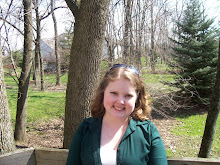On voting...
The Bishops Speak
Title: Religion, Reason, Voting
Author: Cardinal Francis George — Archdiocese of Chicago
Date: Tuesday, October 17, 2006
I wrote the last column to explain what I understood Pope Benedict to have said during his visit to Germany last month: that the path to genuine peace is marked by dialogue between faith and reason in every religion and in every culture on the planet. In our country, the dialogue between faith and reason becomes focused every couple of years in the decisions we make for choosing our elected officials.
The social teaching of the Catholic Church is based on divine revelation and on our understanding of the common good. Scripture tells us that we must love our fellow citizens and all others, even our enemies. Reason tells us that we love others by helping them participate in all the goods that are necessary for a fully human life: free exercise of religion, freedom from violence, access to the truth, productive work, leisure to play and to reconstitute our forces, opportunities for friendship and community and the like. The sum total of social conditions that allow people access to full participation in these goods is called the common good.
Conscience is not an excuse for doing something irrational. We are to form our consciences according to the social teaching of the Church and use that formation to make political choices. This is not easy, because principles are clear but practice often is clouded by confusion of fact and the distraction of various forms of self-interest. The first and most essential principle of Catholic social teaching is the dignity of every human person and one’s basic right to life from conception to natural death. Respect for human dignity is the basis for the fundamental right to life. This is a non-negotiable principle that is supported by our beliefs but is logically independent of our faith. Many non-Catholics think a society dedicated to the common good should protect its weakest members.
A Catholic politician who excuses his or her decision to allow the killing of the unborn and of others who can’t protect themselves because he or she doesn’t want to “impose Catholic doctrine on others” seems to me to be intellectually dishonest. The protection of every innocent human being’s right to life is a principle of reason, even though it is also a stand supported by Catholic moral teaching. Everyone understands, by way of example, that the state should protect property by forbidding stealing. This is a matter of the common good. It is not imposing Catholic morality on anybody, even though the Church teaches that stealing is a sin. Our present legal system protects stocks and bonds, as well as dogs and cats, more than it protects unborn human beings. This is contrary to the common good.
Other principles of Catholic social teaching are similarly based on both divine revelation and human reason. “The Compendium of the Social Doctrine of the Church,” published by the Holy See in 2004, starts with God’s love for us and the dignity of the human person, and then sets out in about three hundred pages the full range of principles informing the Church’s social teaching: the common good, the universal destination of goods, the principle of subsidiarity, participation in society, the principle of solidarity, the fundamental values of social life — truth, freedom, justice.
I admit to a sense of frustration as I contrast this beautiful teaching with the political, economic and social order in which we now live. In the long run, God governs creation and the ideals of Catholic social doctrine are therefore possible of accomplishment. In the short run, we have to vote in a few weeks. The Catholic Bishops of Illinois are publishing a short statement on elections, conscience and the responsibility to vote. Its intention is to be of some help to Catholics who want to take seriously both their faith and their responsibility to the common good of our society.
It’s important to vote in a democratic society, even though much of our life is governed by decisions of unelected bureaucrats and judges and editors and economic players whose names we do not recognize unless there is a scandal of some sort. May each of us do the best we can, using the dialogue between faith and reason that takes place in our hearts, guided by the Church’s social doctrine; and may God protect us and our country. God bless you.
Monday, October 23, 2006
Subscribe to:
Post Comments (Atom)



No comments:
Post a Comment